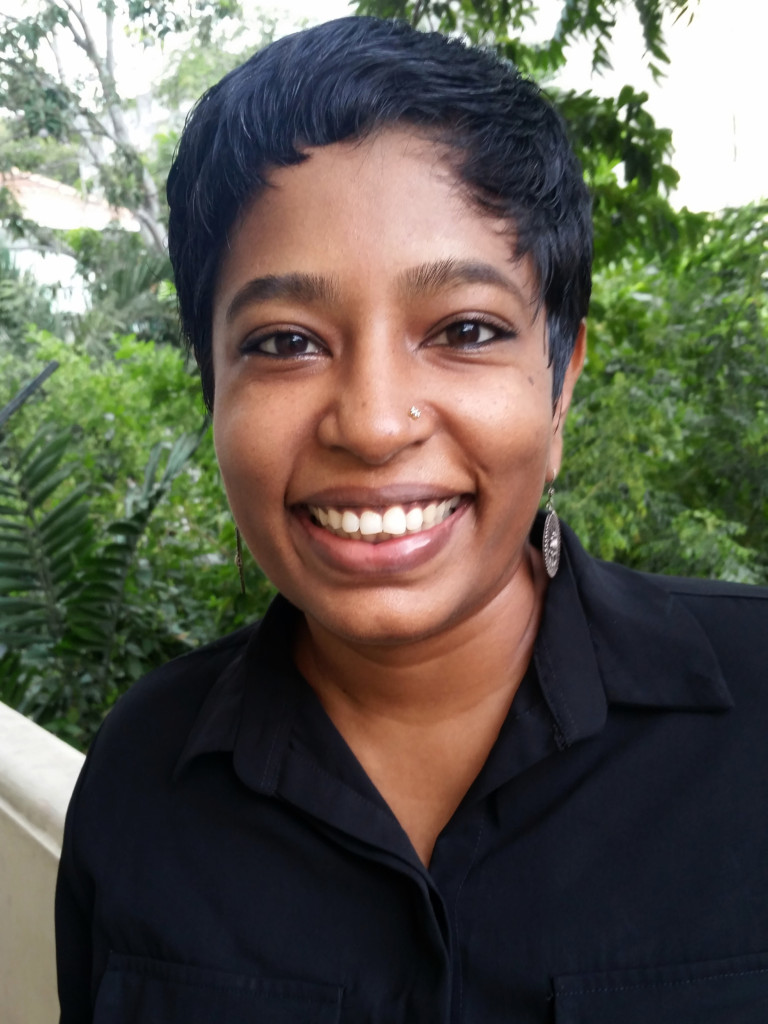
DANIEL SMRITI
- 2016
- Press Fellow
Smriti Daniel is a freelance journalist based in Sri Lanka. Her work has appeared in Al Jazeera, The Sunday Times, Scroll and The Hindu among other many other publications. With over a decade in journalism, her science writing has focused on the intersections of health, innovation, technology and development. She was a User Engagement Coordinator for the South Asian edition of SciDev.Net. In 2013, she was named feature writer of the year by the Editor's Guild of Sri Lanka. 1. Why did you choose to become a science journalist? My answer to this would be to point you in the direction of the speakers at the Falling Walls Conference. Their interests are very varied, proving conversations about science are intrinsic to so many fields, including health, economics, architecture, politics, industry and culture. I have spoken with many scientists and researchers over the course of my career and they have often proved to be great interview subjects – eager to challenge status quo and capable of imagining alternate futures. Personally, I love the sense of discovery working on a piece of science journalism can give me. 2. What role do science and science communication play in your country? I am based in Sri Lanka, where one of the longest-running civil conflicts in Asia came to an end in 2009. Now post-war Sri Lanka is making some crucial choices about its future and it needs science to help ensure development is sustainable and equitable. This island needs affordable and accessible new technologies to buffer its large agricultural sector against climate change, to bolster the growth of new industries and fuel innovation. Sri Lanka is one of the world’s biodiversity hotspots, and so the choices about how energy is produced and how the environment is protected are critical. Sri Lanka offers its citizens free healthcare, but budgets, infrastructure and qualified personnel remain challenges. In a country where the dates of Presidential elections have been decided by astrologers, there are pressing issues about how scientific principles and research are understood and reported – clearly, improved science communication is crucial. 3. In your opinion, which are the walls that will have to fall in science and society within the next five years? Studies have shown that climate change will catapult already vulnerable populations into extreme distress, forcing many further into poverty. In Sri Lanka and the South Asian region, we are already seeing what impacts changes in climate and extreme weather events can have on food security, access to water, livelihoods and health. Science needs to inform smarter development in our cities. We have seen time and again how floods can devastate those living in low-income neighborhoods, who typically have very little in the way of physical protection against natural disasters or financial buffers to help them recover from damage to their businesses and homes. Drought has become increasingly common, and women are particularly vulnerable. In rural areas, men will migrate for work, while women are left as caretakers of the family and must find water for household needs, home gardens and to keep cattle alive. In both urban and rural contexts, we need creative, socially responsible science to drive innovations that will allow our most vulnerable citizens not just to meet their most basic needs, but to prosper. 4. What are the biggest threats/obstacles to good science journalism and how could we tackle them? Science journalism needs to be nuanced and intelligent, and in my experience, it can be difficult to engage the wider public, leading to issues like sensationalized or misrepresented research. It’s a multi-faceted problem but part of the solution is likely to be experienced, dedicated teams of journalists, backed by editors and publishers who see the value of allotting space to science research even in non-specialist publications. Readers can feel alienated from or intimidated by science writing, and as journalists, if we could better communicate the wonder, the importance and the struggles of research, we might spark the public’s imagination more often. There is also the ongoing conversation about the difference between communication and journalism – good science journalism will go beyond simply reporting the news to play the role of a watch dog, challenging both pseudoscience, as well as ethically compromised scientists and researchers. In this context, the challenges of science journalism are not that different from those faced by the journalism community at large. To do this job well, we need the knowledge to question, informed and committed editors, platforms that give us better reach and, quite critically, the support of our readers.